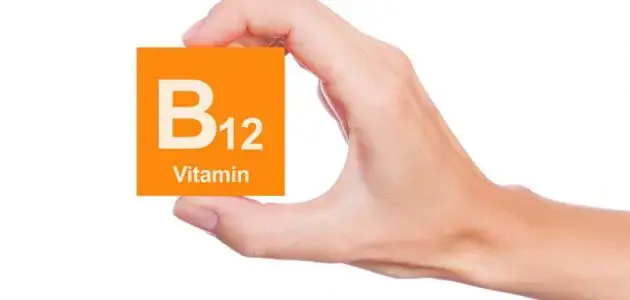Common Signs and Symptoms
Vitamin B12 deficiency typically develops slowly, causing symptoms to appear gradually and worsen over time. However, in some cases, symptoms may arise suddenly and be mistaken for other medical conditions. Here are the key signs to watch for:
Jaundice or Pale Skin
Individuals with B12 deficiency often appear pale or slightly yellow due to a condition known as jaundice. This happens because B12 is essential for producing red blood cells. Without it, the cells are abnormally large and fragile (a condition called megaloblastic anemia), making them unable to leave the bone marrow and circulate efficiently—leading to skin discoloration.
Fatigue and Weakness
One of the most common symptoms is persistent fatigue, caused by the lack of red blood cells necessary to carry oxygen throughout the body. In older adults, a condition called pernicious anemia—often triggered by autoimmune disorders—can further impair B12 absorption by reducing production of intrinsic factor, a protein needed for B12 uptake.
Movement and Balance Issues
Untreated B12 deficiency can damage the nervous system, affecting coordination and movement. This may increase the risk of falls, especially among older adults. Younger individuals with severe or prolonged deficiency may also experience these motor changes.
Shortness of Breath and Dizziness
Due to the body’s reduced ability to transport oxygen, sufferers may feel dizzy or out of breath—particularly during physical activity. While not exclusive to B12 deficiency, these symptoms warrant medical attention if they become frequent.
Vision Disturbances
Blurred or distorted vision can result from optic nerve damage linked to long-term B12 deficiency. This condition, called optic neuropathy, disrupts nerve signals between the eyes and brain, impairing visual clarity.
Tingling and Numbness
Nerve damage caused by prolonged deficiency can lead to sensations like pins and needles, typically in the hands and feet. This results from disrupted production of myelin, a protective sheath around nerves. Interestingly, neurological symptoms can appear even in the absence of anemia, making early detection critical.
Glossitis and Mouth Ulcers
A swollen, red, and painful tongue (glossitis) can signal B12 deficiency. It may also cause burning sensations, ulcers, and altered speech or eating abilities. These oral symptoms can be early warning signs of low B12 levels.
Mood Changes
B12 deficiency is associated with mood disorders such as depression and dementia. Elevated homocysteine levels, resulting from low B12, can damage brain tissue and impair neurotransmitter function. While B12 supplementation may not immediately relieve symptoms, it might help over time for some individuals.
Other Symptoms
- Digestive issues like diarrhea or constipation
- Loss of appetite
- Irritability and confusion
- Hallucinations or psychosis in severe cases
- Cognitive problems including difficulty focusing and memory loss
Causes of Vitamin B12 Deficiency
Inadequate Dietary Intake
People following a strict vegan diet may not get enough B12, which is primarily found in animal products. Infants born to vegan mothers are also at risk, especially as their liver stores are limited and their growth rate increases nutritional demand.
Poor Absorption
This is the most common cause among older adults due to decreased stomach acid production. Conditions like Blind Loop Syndrome, parasitic infections, or diseases affecting the small intestine (such as Crohn’s disease) can hinder absorption. Surgical removal of the ileum or gastrointestinal surgeries may also contribute.
Medical Conditions
Chronic pancreatitis, certain hereditary disorders like Imerslund-Grasbeck syndrome, HIV/AIDS, and malabsorption syndromes can reduce the body's ability to absorb B12 efficiently.
Medication Use
Drugs such as metformin, proton pump inhibitors, and frequent exposure to nitrous oxide can interfere with B12 absorption or metabolism.
Reduced B12 Utilization
Though rare, some individuals may have trouble using B12 within the body even if it is absorbed correctly.
Treatment for Vitamin B12 Deficiency
Treatment depends on the underlying cause. Individuals with pernicious anemia or absorption disorders may require regular B12 injections followed by high-dose oral supplements. For those with dietary deficiencies, fortified foods or oral supplements are often effective. Elderly patients are generally advised to take daily B12 supplements or multivitamins that include B12. Note that nerve damage due to long-term deficiency can sometimes be permanent.
Recommended Daily Intake of Vitamin B12
| Age Group | Recommended Daily Amount (mcg) |
|---|---|
| Infants (0–6 months) | 0.4 |
| Infants (7–12 months) | 0.5 |
| Children (1–3 years) | 0.9 |
| Children (4–8 years) | 1.2 |
| Children (9–13 years) | 1.8 |
| Teens & Adults (14+ years) | 2.4 |
| Pregnant Women | 2.6 |
| Breastfeeding Women | 2.8 |
Overview of Vitamin B12
Vitamin B12, also known as cobalamin, is a water-soluble vitamin crucial for red blood cell formation, DNA synthesis, and nervous system function. Unlike many nutrients, B12 can be stored in the body for several years, primarily in the liver. Since the human body cannot produce it, B12 must be obtained through diet or supplements. It is synthesized only by certain bacteria and serves as a cofactor for three known enzymatic reactions.
Leave a comment
Your email address will not be published. Required fields are marked *




